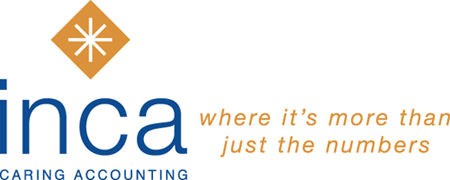When Chancellor Rishi Sunak delivered the government’s budget for the tax year 2020/1 on 11th March, the potential scale of disruption to people and businesses in the UK caused by the Coronavirus was just beginning to become apparent.
As part of the budget, he announced a £30bn package to boost the economy and get the country through the coronavirus outbreak, but this was only the beginning.
COVID-19 has proved to be a far greater threat than anyone anticipated, and as Sunak said a few days later at the first of the government’s daily update briefings, “The pandemic is a public health emergency, but it is also an economic emergency.”
Since the budget, the government has been responding to the evolving situation, continuing to announce further measures to help individuals and businesses deal with the economic impact of the virus. For business owners, these have included business rate holidays, access to business interruption loans – and the government guaranteeing to pick up 80% of salaries for employees unable to work.
The government’s ongoing actions in response to COVID-19 are being well-publicised through the media – and here at Inca, we’ll continue to keep you updated on developments relevant to small business owners through our regular emails. If you’re not already receiving these, please contact us through our dedicated email address [email protected] .
With Coronavirus stealing all the news space, it’s entirely possible you missed some of the other, non-virus-related announcements that were made in the budget. Below, we’ve summarised some of the key headlines likely to be of interest to small business owners that may have passed you by:

” No change to income tax
From April, income tax rates, tax thresholds and allowances will remain unchanged. Basic-rate taxpayers will continue to pay 20% tax on earnings between £12,500 – £50,000, and rates are staying the same for higher-rate taxpayers who will continue to pay 40% on income between £50,000 – £150,000.
” National Insurance Allowance increases
From April 2020, the tax threshold for National Insurance Contributions rises from £8,632 to £9,500. The self-employed and company directors who remunerate themselves through payroll will be among an estimated 31m people who will benefit from a small tax cut. On average, taxpayers will find themselves better off to the tune of around £100 a year.
” Employment Allowance increases
Also with effect from the start of the new tax year, the Employment Allowance will increase from £3,000 to £4,000. But only small businesses (those having an NIC bill of £100,000 or less) will be eligible to claim the Employment Allowance.
” No change to Corporation Tax
For directors of limited companies who were anticipating a reduction to the rate of corporation tax, there was some disappointing news. The government confirmed it was shelving previously announced plans to decrease tax due on company profits from 19% to 17% – for the time being at least.
While the decision leaves no one worse off, it will be frustrating for any company directors who’d already factored the reduction into their profit forecast.
” Increase to Capital Gains Tax exemption
The Chancellor announced a slight increase in the annual exemption allowance for Capital Gains Tax (CGT), confirming that for the tax year 2020-21, the individual allowance will rise from £12,000 to £12,300.
However, for anyone selling a residential property on which CGT is due, this increase in the allowance is mitigated by a reduction in the time in which CGT must be paid. From April, a sale must be reported to HMRC within 30 days, and any CGT due will have to be settled within the same 30-day window. For more information, see Big Changes to Capital Gains Tax Administration from April: How Will Residential Property Sales Be Affected?
” Pension tax relief threshold increases, but allowance floor reduces
In a nod to higher earners, the Chancellor announced that the point at which tax relief on pension contributions begins to reduce will rise from £110,000 to £200,000. However, he also announced a change to the minimum floor the annual allowance can be applied to: reducing it from £10,000 to £4,000
Do you have any queries regarding the budget?
As we said, these are just the headlines. If you need help understanding any aspect of the budget and how it affects you and your business, just give us a call or email us using the contact details at the end of this post.
Helping Your Business Get Through COVID-19
With virtually all businesses affected by Coronavirus, it’s far from business as usual right now. While your priority has to be making sure you and your family stay healthy for as long as the current situation persists, it’s critical also that alongside this, you do everything you can to ensure your business survives this unprecedented event.
Like everyone else, we’ve had to make significant changes to the way we work here at Inca, but we’re continuing to deliver all our usual services. In addition, we’re here for any business owner who is looking for help or advice relating to challenges arising from the crisis.
It’s crucial you do everything you can now to make sure that when things do get back to normal (and they will!), your business is still there to support you and your family.
Call us on 01235 868888 for an informal chat, or email us at [email protected].




